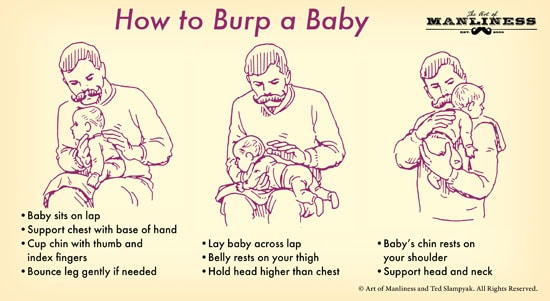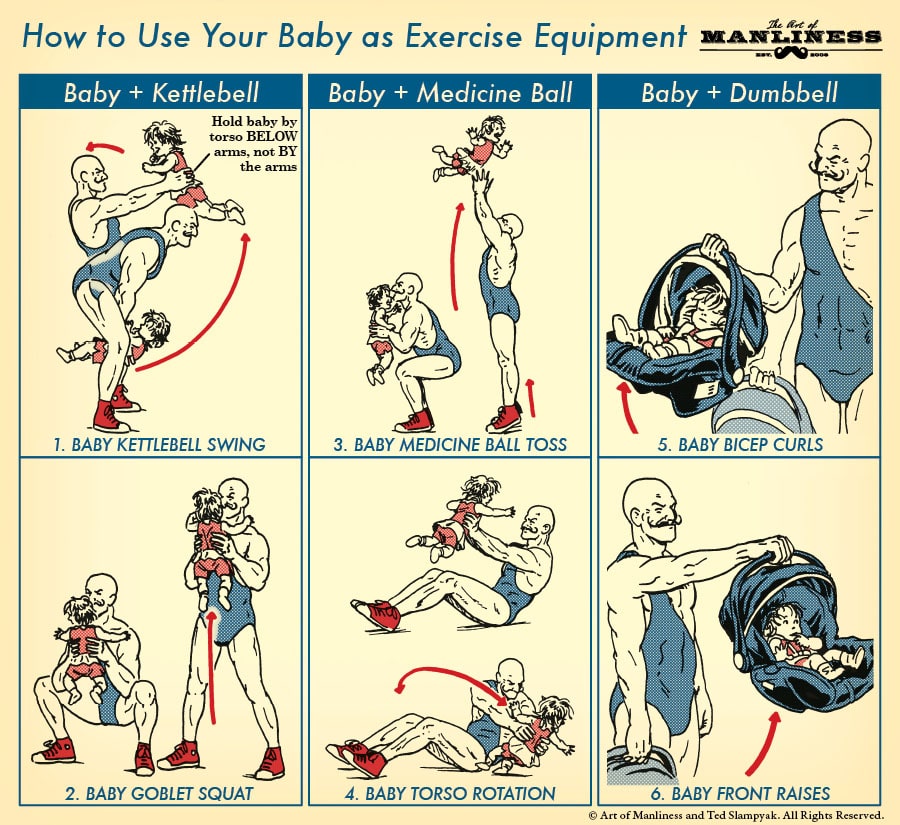
In the 1991 comedy What About Bob?, Bill Murray plays Bob Wiley, a highly neurotic and anxious guy who seeks the help of an egotistical and ambitious therapist named Dr. Bob Marvin (played by Richard Dreyfuss).
Dr. Marvin wants to be the next Dr. Spock — a psychologist who’s a household name. He thinks his recently published book, Baby Steps, is just the ticket to fame and fortune.
When Bob visits with Dr. Marvin about his numerous psychological issues, Dr. Marvin gives Bob a copy of Baby Steps. Bob embraces the Baby Steps philosophy wholeheartedly and proceeds to take literal and figurative baby steps out of Dr. Marvin’s office. Comedic hijinks ensue when Bob crashes Dr. Marvin’s family vacation and baby steps over the boundaries between therapist and patient.
While What About Bob? uses the idea of “baby steps” to poke fun at the world of therapy, it does capture an idea that can sound cliche but is nevertheless true: small actions, when pursued consistently, are typically the most effective way to affect big changes in our lives.
You know—
Little strokes fell great oaks.
Pound the rock.
But here’s something I’ve noticed in my own life: While I cognitively understand that change typically comes through small actions, I still often find myself balking at taking the necessary baby steps to start the change process.
I’m sure some of you reading have experienced the same thing.
In today’s article, we’ll look into why we often hesitate to take baby steps and what we can do to embrace them.
Why We Give Up on Taking Baby Steps Towards Change
There are two main reasons why we’re often reluctant to take baby steps towards a goal: 1) baby steps can make us feel inadequate, and 2) baby steps seem too small to work.
The Sense of Inadequacy, or “This Makes Me Feel Like a Big Dumb Baby” Effect
A big reason why we might be reluctant to take baby steps to change is that doing so can make us feel inadequate.
Psychologist Dr. Ross Ellenhorn talks about the indignity of baby steps in his book How We Change (And Ten Reasons Why We Don’t). Ellenhorn observes that small steps can demoralize us because they constantly remind us of the distance between our current state and our desired outcome. Each baby step can feel like a mini-disappointment that highlights the work that still needs to be done to reach our goal, amplifying our feelings of inadequacy and ineptitude. Taking baby step after baby step forces you to repeatedly face the fact that you’re not where you want to be.
To counter the constant mini-disappointments that often come with baby steps, we just stop taking them altogether. We avoid baby steps because baby steps make us feel bad.
I’ve noticed this in my own life.
I have a tendency to catastrophize things. I have a negativity bias that can make me Eeyore-like. I don’t like it, so I’ve made efforts to get a handle on my Eeyore-ness for most of my adult life.
One of the tactics cognitive behavioral therapists recommend using to overcome catastrophizing is to catch yourself doing it and then take a minute or two to question the assumptions you have that are contributing to your downer mood.
But I find myself balking at putting this habit into practice on the regular. Why? It makes me feel stupid that I have to question my erroneous, overly pessimistic assumptions over and over again. Every time I question my negative view of a situation, it reminds me that I have a melancholic mentality.
Here’s the inner dialogue that goes on when I start taking the baby step of questioning my negative assumptions and feel grumpy about it:
“Man, look how dumb I am. I’ve got to go through this list of questions to see if my negativity bias is correct or not. It makes me feel so stupid because usually the answer to these questions is that my assumptions are distorted. Other people I know don’t have to do this. Why do I have to do this? Oh yeah, because my brain is broken.”
I go into a spiral of doom and gloom. I start feeling bad about feeling bad, all thanks to taking the proven baby step of questioning my cognitive distortions.
Because the baby step of questioning my distorted outlook makes me feel bad, I just stop doing it to avoid those frequent “mini-disappointments.”
How dumb is that? I’d rather experience the long-term pain of having an Eeyore-like brain than experience the short-term pain of doing some cognitive restructuring by questioning my erroneous assumptions — even though the latter option will lead to less pain overall, and maybe even an ultimate end to the pain.
You might see this same dynamic in yourself if you’re, for example, trying to lose weight.
You make small changes to your life. Maybe you start taking a morning walk or tracking your macros.
But when you weigh yourself or look at yourself in the mirror after a couple weeks of effort, you’re reminded that you’ve still got a long way to go to reach your desired weight. It demoralizes you. Every time you take your walk, and you’re huffing and puffing, you’re reminded that you’re out of shape. Every time you agonize over the choice of getting seconds or not, you’re reminded that you have difficulty controlling your eating.
To avoid these mini disappointments on the path to losing weight, you just give up altogether. You’d rather be overweight, and not have your overweight-ness thrust in your face as often, than be constantly reminded that you’re overweight as you take baby steps towards shedding the pounds.
Pride, or the “Baby Steps Are Too Small to Work” Effect
When people decide to make a change or pursue a goal, they tend to take a “go big or go home” approach.
Instead of establishing a weekly date night, you spend $5,000 to attend a couples retreat in California.
Instead of paying off a little of your debt each month, you invest in a bitcoin scheme that promises outsized returns.
Instead of taking a 30-minute walk each evening, you decide to wake up at 4:30 a.m. to take 10-mile long runs. Carry the boats, baby!
Why do we do this?
One factor (which colors all the rest) is pride. We think simple solutions aren’t for us, because we’re not simple creatures — we’re elite, extraordinary beings. Taking small steps is for plebes. We’re sure we’re smart enough to figure out a solution that will allow us to speed up the process and leapfrog ahead.
Another factor at play is impatience. We think about paying down our debt over five years time or shedding fifty pounds by losing two pounds a week for six months, and it feels like it will take for-ev-er. We want to skip as quickly as possible to the final result.
And then there’s the fact that committing to big steps makes us feel good. When we decide on an audacious plan to change our lives, we get a rush of excitement. In getting to see ourselves as the kind of person who’d do something difficult and/or uncommon, we get some of the rewarding, self-affirming feeling that comes from achieving a goal, even though we’ve yet to begin tackling it.
Finally, we frequently choose big actions over small ones simply because we think that baby steps seem too small to catalyze the change we want to bring about. We tend to equate complexity and difficulty with efficacy and worth. It doesn’t seem like small steps can really get us where we want to go. Small steps aren’t flashy, and they don’t manifest immediate, obvious results. It’s hard to hold in your mind, and believe, that small strokes will, eventually, fell great oaks. Small steps derive their power from the compounding effects of effort over time, but on a day-to-day basis, it can feel like nothing is happening.
Getting Over the Indignity of Taking Baby Steps
You can overcome the indignity of baby steps by changing your attitude about them.
Get in the humility zone.
If you want to change, there are a couple of things you have to settle in your soul.
The first is that you are, right now, not where you want to be. You need to accept where you are on the map.
Be frank in assessing your current position, but don’t make any value judgments about it.
If you’re overweight, don’t say, “I’m a big fat dumb dumb who lacks willpower.” Instead, tell yourself, “I’m fifty pounds overweight.”
If you’re grumpier than you’d like, don’t say, “I’m a negative Nelly who’s got a dumb Eeyore brain.” Rather, tell yourself “I’ve got a negativity bias.”
Once you accept where you’re at, you can start moving somewhere else.
The second thing you have to accept is that nearly all lasting change requires small, incremental steps taken over and over again. There is a part of yourself that is constantly wondering, “Isn’t there some other way to get where I want to be?” You must quiet that question and absolutely settle this truth in your soul: There is no other way.
You are not that special. You, yes you, will, like every other human, have to take consistent baby steps to reach your goals.
How do you go about accepting these two realities?
It’s easier said than done, to be honest.
What works for me is just silently thinking or meditating about where I’m at and the inevitability of the way forward. Other people find writing these realities down in a journal to be helpful. If you don’t mind feeling a bit like a weirdo, you can say out loud: “I’m fifty pounds overweight and I can take small steps to slowly reduce my weight.”
Do whatever works for you.
Regardless of the option you choose, exercising it will require an ample dose of reality-affirming humility.
Learn to enjoy the process.
Instead of seeing baby steps as reminders of your shortcomings, flip the script and learn to enjoy taking them.
We’re big proponents of using the power of “like” instead of willpower to reach a goal.
If you want to exercise more, choose an exercise you like doing. You’re more likely to stick with it.
If you want to eat better food, find healthy foods that you enjoy eating.
If you want to lose your temper less, make it a game to see just how stoic you can remain when your kid is having a meltdown.
When you succeed with your small steps, acknowledge it, appreciate it, and reward yourself for the win. It will help you stay motivated to keep going.
Ultimately, overcoming the “indignities” of small steps requires a shift in mindset. By accepting and embracing the inescapable realities of transformation, you can use the underappreciated power of baby steps to bring about some very grown-up changes.






